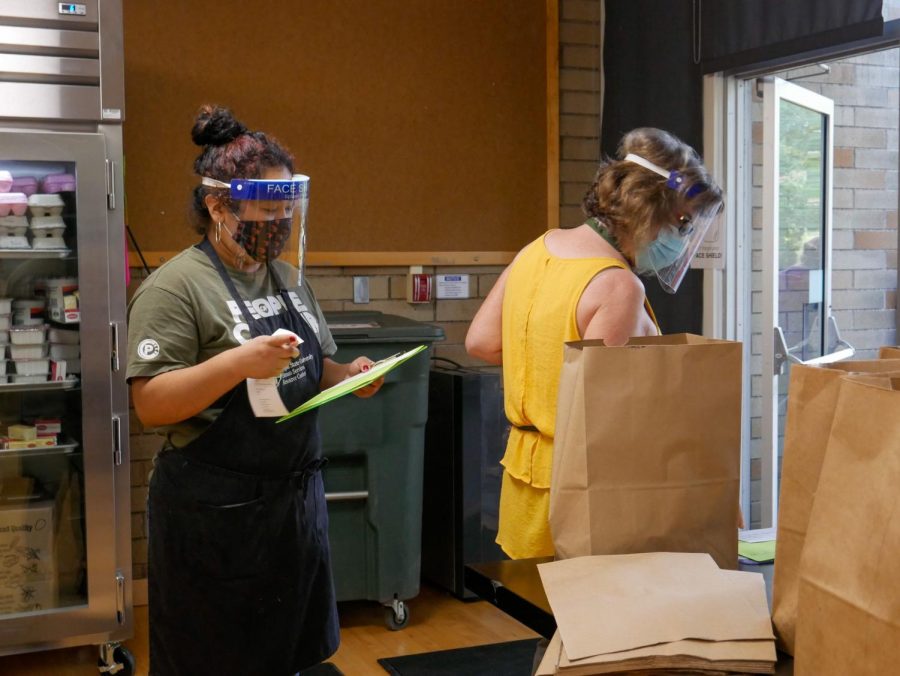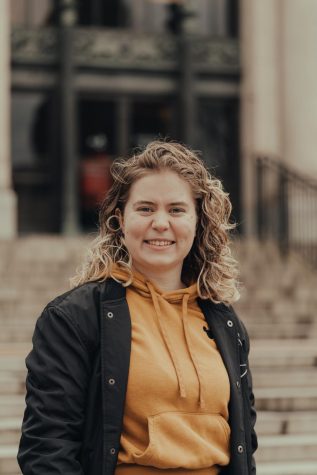OSU students look to additional resources for emergency funding support
September 30, 2020
Editor’s Note: This article is a part of the 2020 OSU Back-to-School Issue. The Baro has put together this issue to inform Oregon State University’s incoming class, as well as returning students about the impacts COVID-19 has had on the university and what to expect this fall.
Clarification: The original number of OSU faculty and staff that have donated to Beaver’s Care was 500, and has since changed to 700. This has been corrected.
Going into fall term, many students may be searching for additional emergency funds due to the COVID-19 pandemic. Two resources available to students struggling are Beavers Care and the Human Services Resource Center.
Students may recall the Federal CARES Act, a scholarship that was used last spring to disperse over $7.7 billion to over 3,500 students. This scholarship is what provided the most amount of emergency funding for students during the spring term, but it also paid out very quickly. Oregon State University has not received more money from the federal government for the CARES Act.
While there is no word on whether OSU will receive more federal emergency funding, Keith Raab, director of Financial Aid, said via email they “remain hopeful that the federal government will take additional action to provide more support for students.”
Until the CARES Act receives more funding, the only other emergency funding scholarship students can go to for help is the Beavers Care through the OSU Foundation. This scholarship is another emergency fund that was started in the spring alongside the CARES Act.
“This money is for helping students with emergency needs,” Raab said via email. “Some of the money has been raised for our office to administer centrally and some of the money has been raised in the colleges for them to administer to students in their college. To date, in our office, we have distributed $222,720 to students.”
Throughout the past couple months as the pandemic has continued on, and as the new school year is beginning, Beavers Care has been helpful to many students, especially because applying for funding from Beavers Care is easier than through the CARES Act. Unlike the CARES Act, Beavers Care has no restrictions against who is eligible and is open to students, staff and faculty.
Anyone who would like to apply for Beavers Care assistance can contact the OSU Office of Financial Aid via phone at 541-737-2241 or email at [email protected]. Beavers Care continues to be a source of emergency funding because of the donations it receives.
“I am grateful to the more than 3,300 donors who have given over $1.3 million to Beavers Care to serve members of the Oregon State University community who have been impacted by the effects of the COVID-19 pandemic,” Kristin Watkins, the vice president, donor engagement and chief marketing officer of the OSU Foundation, said via email. “More than 700 members of our faculty and staff have given to Beavers Care … their generosity speaks volumes about OSU’s culture and helped inspire further giving that had an even greater impact on students, faculty and staff in need.”
While there are no other specific scholarships, there are additional emergency funds for students who are in need. Students who do need money assistance are encouraged to fill out the FAFSA as soon as possible and contact the OSU Office of Financial Aid.
Even though there aren’t many financial scholarships currently available for students during the pandemic, there are many other resources available through programs such as the HSRC. Even before the start of the pandemic, the HSRC had many resources available for students in need. Students looking for assistance can go to the HSRC website and fill out a request for support, stating what help they need.
The resources that HRSC offer include helping students rent textbooks from the OSU Valley Library, giving laptops to students who need them and helping students to apply for SNAP, which is a federal program that can give students up to $194 of grocery money.
Additionally, since the beginning of the pandemic, the HSRC has started a new program called Healthy Beaver Bags, which meets on Fridays from 12-2:30. Students do need to have their IDs in order to go to this event but it helps students learn how to cook healthy and nutritional meals.
“Healthy Beaver Bags started because, before the pandemic, the food pantry used to be shopping style, similar to a grocery store with lots of selection and the ability for people to leave with the food they wanted,” said Nicole Hindes, director of the HSRC. “However, with COVID-19, this changed very quickly. This model is both high volunteer and not safe under COVID-19, so we had to start making food boxes for students with only a few fresh items.”
Hindes said this proved to be not as useful for OSU students because they were concerned about not getting enough healthy meals. The HSRC saw this gap and decided to fill it with Healthy Beaver Bags, which offers not only healthier options but the ability for students to learn to make their own meals with these healthier foods.
“We are seeing two distinct groups of students at the HSRC who need support. One group is the students who have previously lived through financial hardships and know how to ask for help,” Hindes said. “The second is students who are new to this and don’t know how to do this. But it’s okay to ask for help; these resources are set up for it and it’s even a sign of strength to do so.”
If any students are currently going through financial hardship, they are encouraged by OSU faculty and staff to reach out to any of them to ask for help. Any OSU faculty or staff member will be able to direct students to the right place so that they are able to get the resources and support that they may need.











































































































